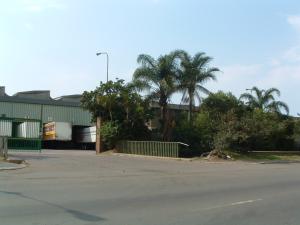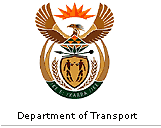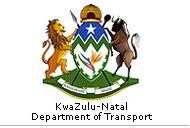 |
Wholesalers and RetailersThe wholesale and retail trade in KwaZulu-Natal is
dominated by a small number of major chains. The major
wholesalers have a network of retail outlets which are
supplied from central warehouses that are located mainly
in the greater Durban area. These distribution centres
receive all the products from suppliers, and then pick the
whole range of requirements into loads for each store and
deliver daily all over the province.
The trend in South Africa towards the establishment of
shopping malls with a range of stores handling
specialties, anchored by major supermarket chains, has
meant that the vast majority of shoppers buy their staple
grocery and domestic requirements from the major chains.
The major chain stores in KwaZulu-Natal move in excess of
2.0 million tons per annum of FMCG (Fast Moving Consumer
Goods) products, perishables and foodstuffs and household
furnishings, clothing, home and garden tools and
appliances.
This tendency towards centralisation of purchasing and
supply functions, has had seriously negative effects on
small retail businesses such as bakeries, greengrocers,
butchers and grocery stores in most country towns, which
cannot compete with the costs of the major chains. The
delivery of a whole range of goods to the branches of the
chain stores has been made cost-effective by the increase
in vehicle sizes and carrying capacity that have been
permitted in South Africa over the past 15 years.

Centralised Distribution Warehouse
|
In addition to the distribution centres of the major
chains, third party distribution and logistics companies
offer complete supply-chain management solutions for
manufacturers, which are cost-effective in reaching the
retail outlets scattered throughout the province. The
increase in the number of integrated distribution
management companies is largely the result of the
difficulty experienced by manufacturers in coordinating
deliveries to wholesalers and retailers, due to extensive
delays experienced at those premises as the result of
inadequate provision of unloading facilities.
The congestion at unloading and delivery docks has been an
ongoing problem for many years, and is currently being
exacerbated by the proliferation of large retail outlets,
most of which have inadequate intake facilities for the
throughput of the businesses. Transport of FMCGThe inbound delivery of FMCG products to the
wholesalers' and retailers' warehouses are normally done by
the
manufacturer, suppliers, or contracted hauliers with large
vehicles. The distribution of the output from the
warehouses is generally performed with 4, 5 or 6 axle
combinations and rigid trucks for the short-haul, multi-
drop deliveries.
Most of the major chains have cold stores, and handle their
own refrigerated deliveries to branches, or use contracted
specialist cold chain transport companies.
|
 |



